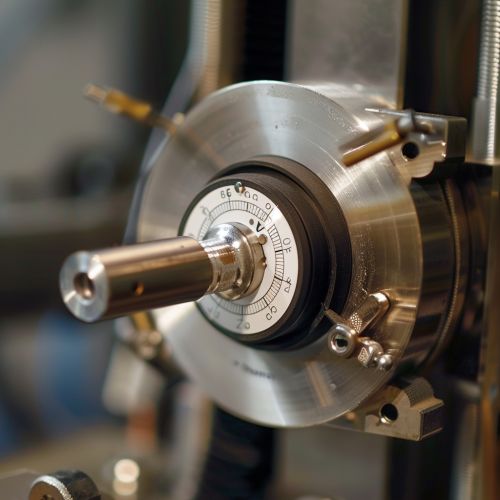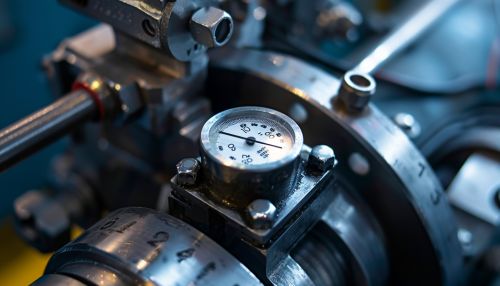Strain Gauge
Introduction
A strain gauge is a device used to measure strain on an object. Originated in the mid-20th century, it has been a fundamental tool in the fields of engineering and physics, specifically for studies and research in stress, pressure, and force. It is based on the electrical resistivity of metallic wire conductors which varies linearly with strain.


Principle of Operation
The operational principle of a strain gauge is based on the electrical resistance property of conductors. When a conductor is stretched or compressed, its length and diameter change, which in turn changes its resistance. This change in resistance is a measure of the strain experienced by the conductor. This principle is known as the piezoresistive effect.
Types of Strain Gauges
There are several types of strain gauges, including mechanical, optical, pneumatic, and electrical.
Mechanical Strain Gauges
Mechanical strain gauges are the simplest type, consisting of a lever and dial that measures the strain by the displacement of the lever.
Optical Strain Gauges
Optical strain gauges use the properties of light to measure strain. They consist of an optical fiber with a grating that changes its reflection properties when strained.
Pneumatic Strain Gauges
Pneumatic strain gauges measure the pressure change in a confined gas caused by strain.
Electrical Strain Gauges
Electrical strain gauges are the most common type. They consist of a thin wire or foil which changes its electrical resistance when strained. There are two main types of electrical strain gauges: wire strain gauges and foil strain gauges.
Applications of Strain Gauges
Strain gauges have a wide range of applications in various fields such as civil engineering, materials science, and biomechanics. They are used in load cells, pressure sensors, and torque sensors. They also have applications in structural health monitoring systems, where they are used to detect damage in structures.
Conclusion
Strain gauges are an essential tool in many scientific and engineering applications. They provide a simple, reliable, and accurate method for measuring strain, which is crucial in many areas of research and industry.
